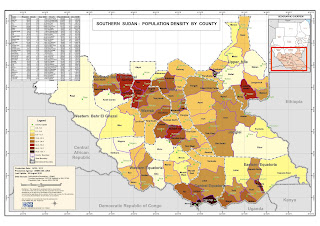
Molti ormai hanno sentito parlare del sanguinoso conflitto nella regione occidentale del Darfur sudanese, dove si fronteggiano guerriglieri islamici di etnia araba (sostenuti dal governo) e tribù locali, islamiche ma non arabe. Forse meno noto è il fatto che le regioni meridionali del Sudan stanno per votare un referendum di autodeterminazione che potrebbe portare alla nascita di una nuova nazione africana, o di una nuova guerra, o più probabilmente di tutte e due. Fatto sta che mentre l'attenzione del mondo si sposta a sud dove stanno per iniziare le operazioni di registrazione dei votanti alla consultazione prevista il gennaio prossimo, il Darfur e i suoi profughi non hanno certo risolto i loro guai.
Come se non bastasse sabato 30 ottobre la polizia di Khartoum è entrata negli uffici della redazione locale di Radio Dabanga e ha tratto in arresto tredici collaboratori. Radio Dabanga non trasmette certo dal Sudan: i programmi vengono prodotti da una ONG olandese, Press Now, che ha scelto il nome di una suppellettile molto diffusa tra le famiglie sudanesi, tanto da diventarne un simbolo. E' una specie di giara in terracotta, molto pesante, dove vengono conservate le granaglie. Come scrive il Washington Post sono numerosi, dentro e fuori il Darfur, gli ascoltatori sintonizzati sulle frequenze in onde corte che Radio Dabanga affitta dai broadcaster internazionali per informare sulle vicende di un territorio blindato dalle autorità.
Sudan raids radio station reporting on DarfurBy Rebecca HamiltonNovember 11, 2010At a market stall in southern Sudan, Darfuri trader Omer Saleh, 45, turned up the volume on his small battery-operated radio. Radio Dabanga, he said - the Dutch-based service that transmits Darfur news by local journalists through shortwave frequencies into Sudan - "is the only way I can know what is happening at home."Half a world away in New York, Ahmat Nour, president of the Darfur People's Association of New York, said he listens to the Radio Dabanga broadcasts every day: "I download the two episodes and listen to them through the Net as soon as I finish work."With the government of Sudanese President Omar Hassan al-Bashir routinely denying foreign journalists access to the conflict-ridden Darfur region, and with Sudan-based media subject to government censorship, Radio Dabanga is the only media outlet routinely providing uncensored information.But on Oct. 30, Sudan's National Intelligence and Security Services raided a Khartoum office shared by Radio Dabanga and Darfuri human rights activists, arresting 13 people. According to Radio Dabanga's Dutch-based director, Hildebrand Bijleveld, the detainees are being held incommunicado in unknown locations.The first official acknowledgment of the arrests came last weekend, with an intelligence official telling the state-run Sudanese media that "Radio Dabanga was working against Sudan, focused on inciting hatred among the people and aborting the peace process." Amnesty International has issued an alert, warning that the detainees are at risk of torture."I think they have done this to intimidate those bringing out the story of what is really happening on the ground in Darfur," Bijleveld said.A new international focusDarfur, in the west of Sudan, attracted widespread attention with reports of atrocities committed against the region's non-Arab population by the Sudanese government and its proxy militia, the Janjaweed. In 2004, the George W. Bush administration declared the atrocities genocide. An unprecedented constituency of advocates has ensured that U.S. government attention has stayed on Darfur, and the U.N. Security Council has issued multiple resolutions, including authorizing peacekeepers and referring the situation to the International Criminal Court.These days, however, international attention is largely focused on southern Sudan ahead of two self-determination referendums (one for southern Sudanese and the other for residents of Abyei, an area straddling the nation's north and south) scheduled for Jan. 9. The referendums mark the final stage of a 2005 peace agreement that ended 22 years of war between the Sudanese government in the mainly Muslim north and rebels based in the mainly Christian and animist south.U.S. diplomats are working to ensure that the voting proceeds peacefully and that the Sudanese government, faced with the prospect of losing its oil-rich southern territory, accepts what is widely expected to be a southern vote for independence. "Realistically, there is a finite amount of leverage the U.S. government has available in Sudan," said Jon Temin, Sudan program officer at the U.S. Institute for Peace, explaining that with the referendums, there is less leverage for other issues such as Darfur.For the Darfuri diaspora, the shift in international attention away from their homeland is frustrating. "Darfur is still hurting," Nour said.

Nessun commento:
Posta un commento